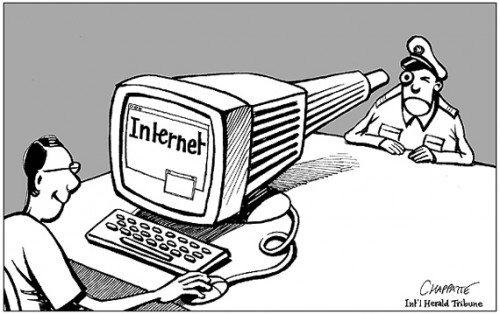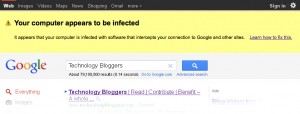Have you ever thought of what is going to happen when you are infected by a computer malware? About a decade ago, computer virus aims were to replicate themselves and destroying key operating system functions. If you got a computer malware infection at that time, most probably your operating system will be corrupted by the malware and you will need to format your hard disk to solve your problem.
Today, malicious software behaves a little different. We have more than 10 types of computer security threats such as virus, trojan, worms, spyware and many more. Each type of malware has their own speciality and here are top 3 risks of getting infected by a computer malware.
1. Having your login credentials stolen
It is very popular today that a keylogger/keystroke logging is used to log a victim’s login credentials. Once the keylogger has a set of your username and password, they can login into the account and do almost everything unless your account is protected by a two factor authentication.
2. Losing hard disk space
Hard disk space today can be very cheap but we should not waste it on storing malicious software. Malware such as worms will replicate in your operating system and take up your hard disk space. You will not feel the burden at the beginning but as the process gets longer, you will start to feel the pain of having insufficient disk space.
3. Spending money on unnecessary stuff
There is also a type of malware where they scare you off by telling you that your computer has hundreds of infections which you actually don’t have. Upon scaring you, they urge you to purchase a bogus antivirus which claims that can clean all the mentioned infections. All in all, you end up actually paying for nothing.
4. Being part of a minion for DDoS attack
Have you ever thought of how DDoS can bring thousands to millions of traffic to a server? It is actually all the computers which are infected with some sort of trojan that explains how the attacker can have such massive amount of traffic. By getting a malware infection, you are at risk of becoming part of this big project which you do not want to be.
5. Losing your privacy
Another form of malware which is known as spyware is built to spy your daily activities. By knowing your daily activities, the attacker will be able to understand you better before attacking you. For instance, if you regularly surf to adult sites, the attacker will probably start off with some fake adult material to lure you into their trap.
 Back to you now, are you able to take all the risks mentioned? If you are not, be sure you have a good habit when it comes to internet and computer security and always remember that having an antivirus and firewall is not sufficient for a good security.
Back to you now, are you able to take all the risks mentioned? If you are not, be sure you have a good habit when it comes to internet and computer security and always remember that having an antivirus and firewall is not sufficient for a good security.
